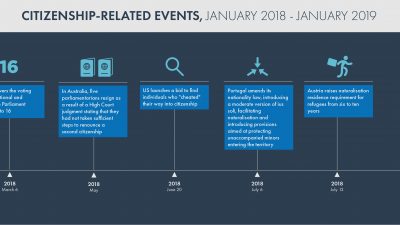
Why are there so few naturalisations in Latin America?
Four reasons might be anticipated. First, there is some historical continuity since naturalisation has always been a path followed by very few in the region (Acosta 2018). Second, the need to renounce the previous nationality, at least on paper, in countries like Mexico, could act as a deterrent. Third, immigration rates have been quite low in Latin America since the large immigrations of the early 20th Century. Fourth, most current immigration is of regional origin and regional integration processes such as MERCOSUR, the Andean Community but also the Central American System of Integration (SICA in its Spanish acronym), have facilitated mobility, residence and access to rights for regional migrants thus possibly limiting incentives to naturalise.









